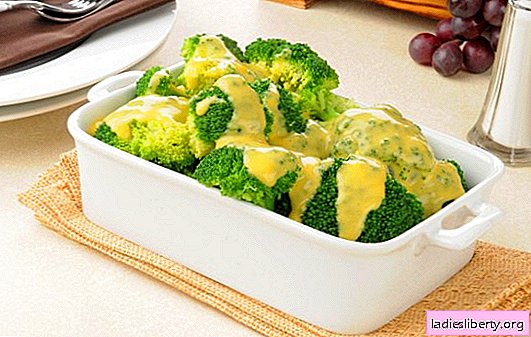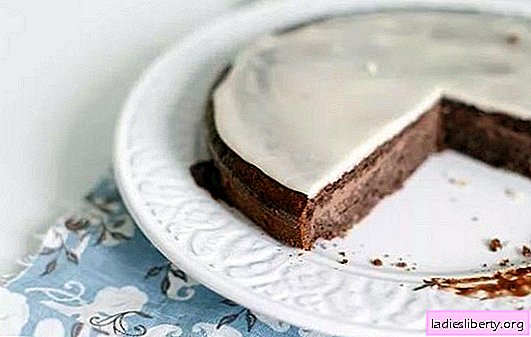
In the modern world, heart disease occupies a leading position in terms of mortality.
Who has not heard of coronary heart disease or heart attack and stroke?
These diseases are practically on everyone’s lips.
Cardiac ailments are easier to treat if conventional therapy is combined with a vascular diet.
Experts say that most cardiac pathologies are associated with a lack of potassium and magnesium in the body. Therefore, it is important to ensure that the patient’s table is replete with products containing these beneficial trace elements.
General principles of diet for cardiovascular diseases
Proper nutrition for cardiovascular diseases directly affects the effectiveness of treatment. The first thing you need to pay attention to is the quality of fat consumed. Anyone who suffers from heart disease should minimize the consumption of fatty foods.
Oils and fats of animal origin that have undergone industrial processing should be limited in the diet of a sick person. Such substances are not completely digested, part settles on the walls of blood vessels. We are talking about fatty meat, dairy products, cheese, so many favorite fast food.
Vegetable oils are recommended. They digest all the fats that enter the body. Each oil has its own set of beneficial substances. Therefore, from time to time it is necessary to change the types of oils.
Unrefined oils are recommended, which are best consumed with vegetables, using them for dressing salads. Useful sunflower, olive, pumpkin, corn, linseed oil. The maximum "dose" of anyone is 2-3 large spoons per day.
The main recommendations of the vascular diet include the following:
1. Reduce your meat intake as much as possible. Use vegetable fats for cooking.
2. Include fish in your diet.
3. Eat foods that can bind bad cholesterol. These include: beans, beans, herbs, eggplant, potatoes, dried fruits.
4. Eat nonfat milk products, preferably dairy products.
5. Reduce salt intake.
6. Include more potassium products in the menu. These are, first of all, bananas, grapes, kiwi, citrus fruits, etc.
7. Refuse carbonated sugary drinks, including alcohol.
8. Eat plenty of fiber foods. Vegetables and fruits that contain it normalize the activity of the intestine, contribute to better promotion of food through the digestive tract, create a feeling of satiety, fill the body with useful vitamins and minerals, strengthen the immune system.
9. Refuse flour and sweet, watch your own weight.
10. Maximize your diet. Eat both plant and animal food (in limited quantities).
11. Try to eat food at the same time for active secretion of gastric juice. Distribute the daily volume into 3-4 or 4-5 (for obesity) receptions.
12. Do not pass. If you really want to eat before bedtime, drink kefir or eat an apple.
Attention! Do not prescribe yourself a diet yourself. Lack of accurate knowledge about your disease, inability to make a menu - all this can lead to poor health.
According to scientists, products containing flavonoids help prevent cardiovascular disease. These include: tea, onions, apples, wine. In addition, omega-3 polyunsaturated fatty acids are extremely useful in heart disease. They are found in vegetable oils, in soy, beans, seafood, fish. These substances improve blood vessels, lower cholesterol, strengthen the cardiovascular system.
Products recommended for heart disorders:
• cod liver oil, wheat germ
• fatty fish varieties: salmon, salmon
• olive oil
• nuts, berries
• oatmeal
• soy
• beans
• artichoke
• flax seeds
• tea
Diet for cardiovascular diseases involves the use of:
• vegetarian soup or borscht, vegetable, potato, milk soup
• lean meat, fish, seafood
• skim dairy products
• eggs (up to 4 per week)
• porridge (buckwheat, oat, millet), in small quantities - rice and semolina
• vegetables, fruits, berries
• a small amount of sugar
• weak tea or coffee
Products prohibited for heart ailments:
• Animal fats with which cholesterol enters the body. They are found in fatty meat (pork, lamb), butter, fatty dairy products, and sausages. Fatty meats and sausages should be generally excluded, and the rest should be consumed in small quantities, mindful of your disease.
• Alcohol negatively affects the entire body, poisoning it. Alcohol makes the heart work, which is called "wear and tear." It increases blood pressure, “helps” heart attack and stroke, and causes complications of coronary heart disease.
• Caffeinated products. These include strong tea, coffee, energy, cocoa, chocolate. These drinks contribute to spasm of blood vessels, increase blood pressure. However, some researchers have argued that moderate amounts of tea or coffee, in contrast, are useful for heart conditions.
• Salt. It is not recommended on a vascular diet, because it contains sodium, which retains water, causing an increase in pressure.
Proper nutrition for cardiovascular diseases - sample menu
Menu for 1 day:
Breakfast: Omelet from 1 egg for a couple, milk oatmeal, weak tea.
2 breakfast: Baked apples with sugar.
Lunch: Boiled meat (lean), carrot puree, vegetable soup with barley, stewed fruit.
Snack: Broth of wild rose.
Dinner: Mashed potatoes, boiled fish, cottage cheese casserole, juice.
Before going to bed - a glass of kefir.
Menu for the week:
1 day
Breakfast: Buckwheat porridge with milk, green tea (weak).
Lunch: 1 hard boiled egg.
Lunch: Soup from vegetables, casserole (vegetable with meat), berry jelly.
Snack: Banana or kiwi.
Dinner: Mashed potatoes, vegetable salad with the addition of vegetable oil.
Before going to bed - kefir.
2 day
Breakfast: Oatmeal porridge, herbal broth.
Second breakfast: Low-fat cottage cheese.
Lunch: Chicken soup, mashed potatoes, fruit drink.
Snack: Milkshake, banana (can be added to the cocktail).
Dinner: Vermicelli casserole, boiled beetroot salad.
Before going to bed - kissel.
3 day
Breakfast: Steam omelet, weak tea.
Second breakfast: An apple baked in the oven with sugar.
Lunch: Vegetarian borsch, steamed pancakes, meatballs, compote.
Snack: Cottage cheese or cottage cheese casserole.
Dinner: Fish stewed in sour cream, carrot salad with olive oil.
Before going to bed - yogurt (no additives).
4 day
Breakfast: Milk semolina, coffee with milk.
Second breakfast: Carrots, grated on a fine grater with sugar.
Lunch: Vegetable soup, boiled potatoes with a slice of turkey, juice.
Snack: Any fruit salad.
Dinner: Steamed buckwheat cutlets, coleslaw with herbs.
Before going to bed - a little low-fat cottage cheese.
5 day
Breakfast: Boiled egg, baked pumpkin.
Lunch: Fruit jelly.
Lunch: Vermicelli soup, stewed cabbage, boiled meat, stewed fruit.
Snack: Baked apple with sugar.
Dinner: Fishcake, corn porridge, vegetable salad.
Before going to bed - a decoction of herbs.
6 day
Breakfast: Oatmeal on the water (possible with the addition of dried fruits), herbal broth.
Second breakfast: cottage cheese.
Lunch: Potato soup, pilaf with vegetables, fruit drink.
Snack: Fruits.
Dinner: Boiled pasta, meatballs, vegetable salad with olive oil.
Before going to bed - yogurt.
7 day
Breakfast: Rice milk porridge familiar from childhood, a weak solution of tea.
Lunch: Vinaigrette.
Lunch: Pearl barley soup, stewed potatoes, jelly.
Snack: Yogurt.
Dinner: Vegetable casserole with chicken, vinaigrette.
Before going to bed - kefir.
Recipes for some dishes
Chicken soup.
Pour about 2 liters of water into the enameled dishes, boil, drop the peeled potatoes, carrots and onions, cut into cubes (or whatever), as well as a little buckwheat. Pre-fry the chicken breast in vegetable oil. Place it in a pot with soup and cook the dish until cooked. Add some salt at the end.
Vegetable salad.
It is prepared from any vegetables. The main thing is to fill with vegetable oil at the end. On a vascular diet, a salad of boiled beets with green peas is useful. Boil the root crop, then, as usual, grate it on a grater with large teeth. Add green canned peas (without liquid) to the grated mass, pour the salad with any vegetable oil.
Potato casserole with cottage cheese.
Peel potatoes (200 g), chop it coarsely and boil until partially cooked, mash. Combine the potato mass with grated cottage cheese (low-fat) and add a quarter of the egg, mix.
As a result of your efforts, you will get a mass that should be put on a greased baking sheet and put in the oven. On top, apply a layer of sour cream with an egg (pre-beat). Before use, pour the casserole with a small amount of low-fat sour cream.
Meatballs with zucchini.
Stuffing minced meat (100 g) with squeezed wet bread, add salt and mix well. Form small meatballs and cook them in a double boiler. Prepare the zucchini in advance: cut them into circles and boil them in slightly salted water.
Grease a baking sheet with butter, place zucchini on it, place a little bit of meat in the middle of each, pour all the sour cream and bake in the oven until golden brown.
Proper nutrition for cardiovascular diseases - important points
Adhering to a vascular diet, it is necessary to take into account some rules that will allow you to quickly defeat the disease. So what you need to know:
1. A sick person should remember that it is best for him to eat often and little by little so as not to overload the stomach.
2. The amount of fluid drunk is reduced. This is necessary, first of all, to those people who are familiar with swelling firsthand. It is allowed to drink traditional 1.5 liters of water per day.
3. The use of a sufficient amount of dietary fiber eliminates excess "bad" cholesterol, and also removes toxins and toxins. The minimum of vegetables and fruits that you need to eat is 300 g per day.
4. Products are better to boil, bake, that is, cook in such a way as to exclude the use of excess fat.
5. The amount of salt is recommended to be sharply limited to 3-5 g per day. Food should be cooked unsalted, and add - immediately before use.
6. In the absence of obvious contraindications, you can drink a little red wine - up to 70 ml per day, but smoking is a real enemy of the heart.
10. Having excess weight, fight to normalize it.
11. Preference should be given to fruits and vegetables, in which there is a lot of vitamin C, P, B, as well as magnesium and potassium.
12. The energy value of products per day should not exceed 2400-2600 kcal. Calorie reduction is done by reducing the amount of fat and a small amount of carbohydrates.
13. Vegetarian or cereal soups are not recommended to eat more than 250-400 ml at a time.
The diet for cardiovascular diseases must be strictly observed by those who have a moderate or stage of disease compensation. A therapeutic diet helps to normalize metabolic processes in the body, improve blood circulation and the work of the cardiovascular system. The goal of diet therapy is to create favorable sparing conditions for the heart, as well as for other equally important organs.











